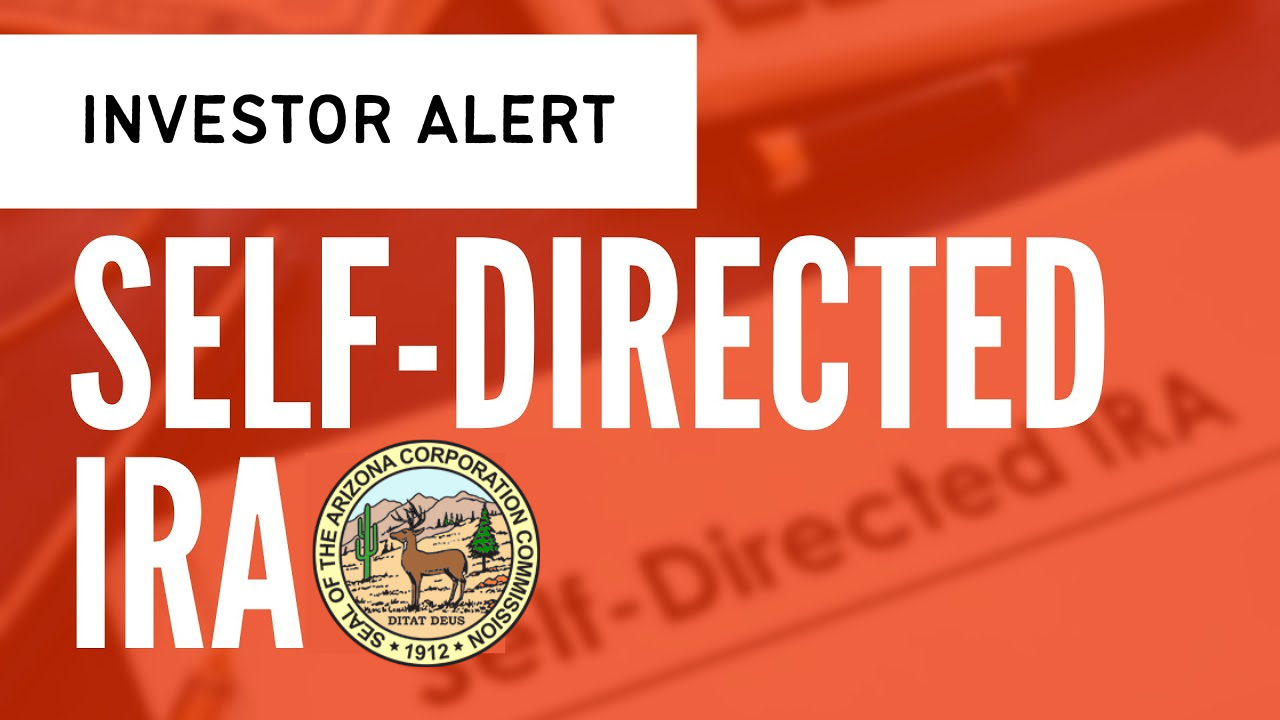The Arizona Corporation Commission’s Securities Division is warning investors of the potential risks associated with self-directed IRAs.
Self-directed, IRAs (Individual Retirement Accounts) permit a broader portfolio of assets that may include real estate, private placement securities, promissory notes, tax lien certificates, precious metals and cryptocurrency, but they can also include the increased possibility of fraudulent schemes, high fees and volatile performance that can result in financial loss.
Risks of Self-Directed IRAs
While most investments have risk, self-directed IRAs have some risks that differ from those involved with IRAs offered by registered broker-dealers and investment advisers. These risks include a lack of legal and regulatory protection and a heightened risk of fraud, particularly when investing in alternative assets.
Risk #1: No Review – With a self-directed IRA you have sole responsibility for evaluating and understanding the investments in the account. Due to federal laws and regulatory rules related to selling investment products or providing investment advice, most custodians for other types of IRAs limit the holdings in IRA accounts to firm-approved stocks, bonds, mutual funds, and certificate of deposits (CD)s. However, these limitations do not apply to self-directed IRAs. It is important to know that custodians of self-directed IRAs:
Self-directed IRA custodians are only responsible for holding and administering the assets in the account and not typically responsible for investment performance. For additional information on self-directed IRA custodians, visit www.azcc.gov/azinvestor/investor resources and read “Are you an informed investor? Third-Party Custodians of Self-Directed IRAs and Other Qualified Plans.”
Self-directed IRA promoters are individuals or companies that promote and solicit money from investors for self-directed IRA investments that may not be licensed investment professionals subject to the same regulatory oversight and investor protection rules that govern the securities industry. Promoters may be IRA custodians or they may be affiliated with one or more self-directed IRA custodians.
Risk #2: Lack of Information and Liquidity – Self-directed IRAs allow you to hold alternative investments that, unlike publicly traded securities, may only provide limited disclosures. Even when financial information for these alternative investments is available, it may not be audited by a public accounting firm. Again, self-directed IRA custodians usually do not check the accuracy of any financial information that is provided for an investment in the account.
Additionally, alternative investments may lack liquidity either because of extended holding periods, restrictions on redemptions, limited markets, or some combination of these factors. This can make it difficult for you to easily sell these investments when you want to, including when you retire, or when you have to take required minimum distributions (RMDs).
Risk #3: High-risk investments offered— Some self-directed IRAs may offer investments in “crypto assets” such as virtual currencies, coins, and tokens. Crypto assets may be securities that are offered without SEC registration or a valid exemption from registration, and may not be accompanied by complete or accurate information to aid investors in making informed decisions. In addition, many of the trading platforms for these crypto assets refer to themselves as “exchanges,” which may give investors the misimpression that they have registered with the SEC.
Risk #4: Fertile Ground for Fraud – Fraudsters may be more likely to exploit self-directed IRAs because custodians or trustees of these accounts may offer only limited protections. Using a legitimate custodian to buy an investment DOES NOT make that investment legitimate. Fraudsters may still attempt to sell you fraudulent investments through legitimate custodians. Here are some examples of how fraudsters may try to use self-directed IRAs to perpetrate a fraud on unsuspecting investors:
Risk #5: Complex Tax Rules – Investing through a self-directed IRA requires you to follow complex IRS tax rules that do not apply to other IRAs. Failure to follow these rules may result in unintended tax consequences such as extra taxes, financial penalties, or even loss of the account’s tax deferred status. Consult with a tax advisor before investing through a self-directed IRA to confirm that any potential investment or investment strategy follows these IRS rules. More information about these tax rules can be found on the Internal Revenue Service website.
Risk #6: High Fees – Fees for self-directed IRAs may be significantly higher than those for other types of investment accounts. In addition to transaction fees, there may be account opening fees, annual account fees, administrative fees and asset specific fees in the account. These fees vary among self-directed IRA trustees and custodians. Before opening a self-directed IRA, make sure you understand these fees and how they could impact the performance of investments in your account.
Ways to Avoid Fraud with Self-Directed IRAs
There are important steps that investors can take to reduce the risk of fraud:
Recourse for Defrauded Investors
If you have lost money in a fraudulent investment scheme involving a self-directed IRA or third-party custodian, or have information about one of these scams, you should report it to the Securities Division’s Investigator on Duty at securitiesdiv@azcc.gov or call 602-542-0662. The duty officer can direct you on how to begin the investor complaint process. Visit www.azcc.gov/azinvestor for more helpful information on wise investing and fraud prevention.

Registration Quick Links
Registration of Securities
Registration Exemptions
Registration and Licensure Exemptions
Forms